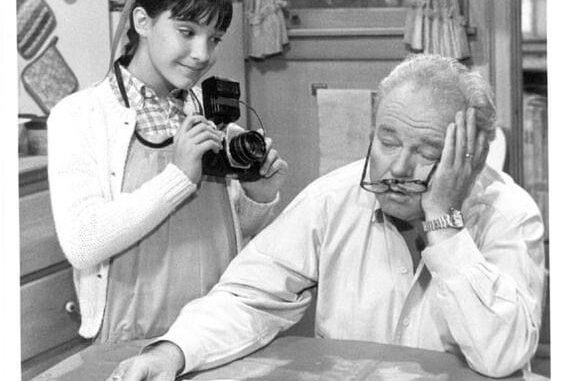
The American sitcom has been around almost as long as television itself, and while there have been literally hundreds of entries within the genre, there are still those that remain timeless today. Whether for their groundbreaking nature, lovable characters, or outstanding production, these shows remain among the best and most important entertainment media of all time. One such sitcom stood out for nearly all the aforementioned reasons, and remains one of the most influential, controversial, and acknowledged series ever attempted: Norman Lear’s All in the Family. Loosely based on the British sitcom, Til Death Do Us Part, All in the Family was a massive success for Lear and CBS, leading to a sprawling sitcom universe that included Good Times, Maude, The Jeffersons, and several direct follow-ups to All in the Family, including Archie Bunker’s Place and Gloria. While groundbreaking in their own right, each of these series owed their existence and varying degrees of success to the original show, and the fascinating character dynamics of the Bunker family.
The series features a typical American family dealing with various social, political, and personal affairs, each through their own level of understanding. The cast was composed of Jean Stapleton as the lovable matriarch, Edith Bunker, Sally Struthers as her open-minded daughter, Gloria Stivic, and Rob Reiner as her semi-hippie husband, Mike. Rounding out the cast was Carroll O’Connor as the brutish bigot, Archie Bunker; Throughout the series, Archie and the other family members face off on various social issues, the changing political climate of the day, and religion, just to name a few. But at the end, they will always come back together as a beloved, if not slightly dysfunctional, family. Over the years, Archie exhibited growth in his views, eventually becoming one of the most loved and important characters of the series. However, there’s a curious period in the show’s history where a month-worth of Archie-less episodes aired. What viewers didn’t know was that a behind-the-scenes dispute almost ended the character’s very existence.
The Success of ‘All in the Family’ Was Not Guaranteed
Considering All in the Family’s lasting success, viewers may find it hard to believe that CBS feared the backlash the show might bring. From the beginning, the show was going to deal with controversial topics, and CBS executives warned the network about the implications that would come with such material, thus the pilot was aired with a disclaimer. As PBS recalled, the opening crawl read: “The program you are about to watch is All in the Family. It seeks to throw a humorous spotlight on our frailties, prejudices and concerns. By making them a source of laughter, we hope to show —in a mature fashion—just how absurd they are.”
Although the warning sought to make the light of the show’s more intense themes, the company was still nervous. According to MentalFloss, during production of the initial 13 episodes ordered by the network, creator, Norman Lear, received a memo from the network with a detailed list of words, phrases, and subjects which the CBS Programs Practice department was uncomfortable with. Lear decided to ignore many of the requests, and, to the surprise and relief of CBS, the backlash never came about. In fact, The Atlantic claims that the show was not only a ratings smash, but credits the show with having helped “bridge the generation” gap, in no small way, because of Archie Bunker. Although his views were often backward and his speech offensive, the patriarch of the Bunker family was key to the show’s thesis and weekly plots. However, the success of the show and of the character will lead to burn-out and a lawsuit that will put the show in a difficult situation.
